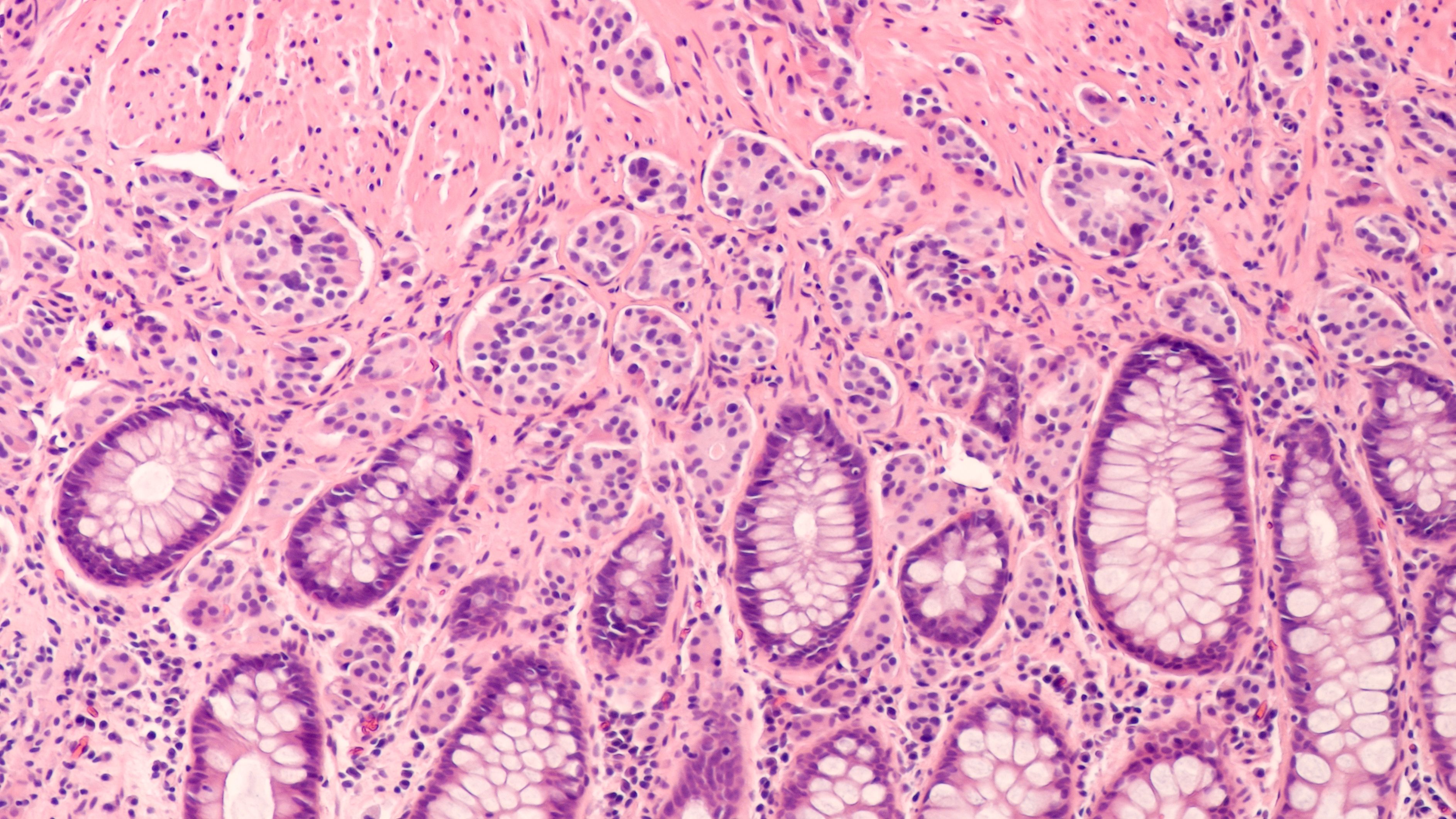Brentuximab Combo Demonstrates Positive Efficacy in Advanced Hodgkin Lymphoma
Brentuximab vedotin plus nivolumab, doxorubicin, and dacarbazine appears to be well tolerated in patients with advanced stage classical Hodgkin lymphoma, according to data from the phase 2 SGN35-027 trial.
Lymphomas: © David A Litman - stock.adobe.com

Brentuximab vedotin (Adcetris) combined with nivolumab (Opdivo), doxorubicin, and dacarbazine delivered high progression-free survival (PFS) rates and was well tolerated in patients with advanced stage classical Hodgkin lymphoma, according to findings from the phase 2 SGN35-027 trial (NCT03646123) presented at the 2023 American Society of Hematology (ASH) Annual Meeting and Exposition.
A total of 93% of patients experienced a complete response (CR) or partial response (PR) at the end of treatment, with 88% having a CR (95% CI, 76.3%-94.9%). The PFS after 2 years was 88% (95% CI, 75.7%-94.6%), with 12% of patients experiencing PFS events, 11% experiencing disease progression, and 2% experiencing death.
"We still have 83% of the patients going on long-term follow up, and this [combination] represents very promising efficacy and tolerability and warrants further exploration in the setting of advanced stage classical Hodgkin lymphoma,” Hun Ju Lee, MD, an assistant professor of medicine in the Department of Lymphoma & Myeloma at The University of Texas MD Anderson Cancer Center, said during the presentation.
Part B of this open-label, multi-part, multi-center phase 2 trial enrolled patients with stage III or IV Hodgkin lymphoma or stage II disease with bulky mediastinal disease of 10 cm or more. Patients were given 1.2 mg/kg of brentuximab vedotin intravenously, 240 mg of nivolumab, 25 mg/m2 of doxorubicin, and 375 mg/m2 of dacarbazine for up to 6 cycles.
Patients ranged in age from 19 to 78 years old; the median age was 35 years. Most patients had stage IV disease (51%), and 30% of patients had bulky stage II disease. A total of 58% of patients presented with B symptoms at time of initial diagnosis, and over 75% had intermediate- to high-risk disease with respect to International Prognostic Score (IPS). Almost all patients enrolled on trial received at least 1 dose (98%), and 83% of patients remain in long-term follow up. A total of 90% of patients completed treatment.
The primary endpoint for Part B of this study was the CR rate at end of treatment, and secondary endpoints included overall response rate (ORR), PFS, duration of response (DOR), and duration of complete remission (DOCR).
A total of 88% (95% CI, 75.7%-94.6%) of patients had a DOR of over 24 months, and 88% (95% CI, 76.0%-94.6%) had a DOCR of over 24 months.
The most common treatment-emergent adverse effects (TEAEs) of any grade were nausea (65%), fatigue (49%), peripheral sensory neuropathy (44%), alopecia (35%), diarrhea (32%), and constipation (26%). The most common grade 3 or higher TEAEs were an increase in alanine aminotransferase (11%), neutropenia (9%), an increase in aspartate aminotransferase (4%), fatigue (4%), and peripheral sensory neuropathy (4%). No grade 5 TEAEs were reported. Only 12% of patients discontinued treatment with brentuximab vedotin due to TEAEs, and 16% discontinued nivolumab due to TEAEs.
Immune-related TEAEs were experienced in 33% of patients, with the most common being hypothyroidism (9%), rash maculopapular (5%), pneumonitis (5%), an increase in aspartate aminotransferase (4%), an increase in alanine aminotransferase (4%), rash (4%), and dermatitis acneiform (4%). These TEAEs led to a discontinuation of nivolumab in 7% of patients.
REFERENCE:
Lee H, Flinn W, Melear J, et al. Brentuximab vedotin, nivolumab, doxorubicin, and dacarbazine for advanced stage classical Hodgkin lymphoma: efficacy and safety results from the single arm phase 2 study. Presented at the 2023 American Society of Hematology (ASH) Annual Meeting and Exposition; December 9-12; San Diego, CA; abstract 608.
Examining the Non-Hodgkin Lymphoma Treatment Paradigm
July 15th 2022In season 3, episode 6 of Targeted Talks, Yazan Samhouri, MD, discusses the exciting new agents for the treatment of non-Hodgkin lymphoma, the clinical trials that support their use, and hopes for the future of treatment.
Listen